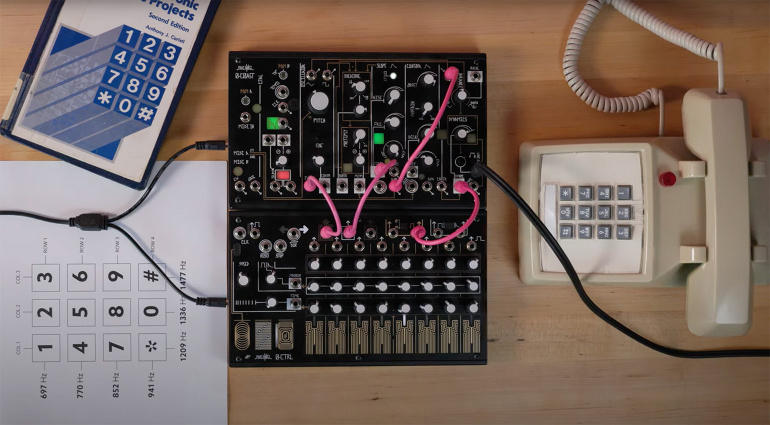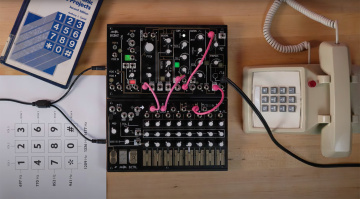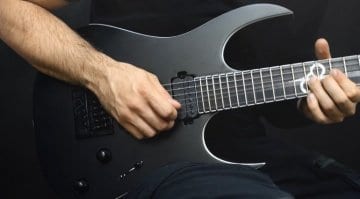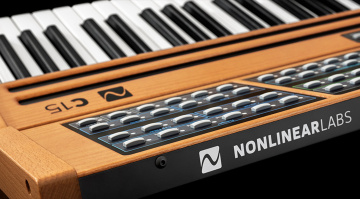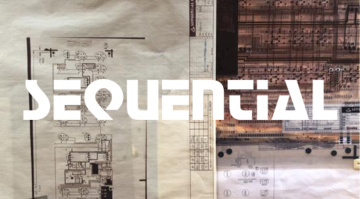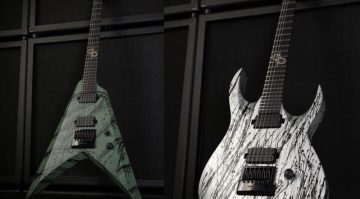Touch Tone Timbres, ARKARION, Fan Oscillators: Synth Journal
In this week’s Synth Journal: Make Noise explores historic touch tone sounds, CubuSynth announces an impressive Eurorack synth voice, and a CPU fan becomes an oscillator.
Synth Journal
Tech Nostalgia with Make Noise: Touch Tone Timbres
Let’s kick off this edition of Synth Journal with a little trip down memory lane. Anyone over 30 will surely remember the age of analog phones and the characteristic sounds associated with them. There was even a time when some people carried small tone generators in their pockets so they could listen to their home answering machines from a payphone. I know, I’m old…
The principle is actually quite simple. The touch tones of multi-frequency dialing, which many of us still remember well, each consist of two overlapping frequencies. The dial tone, busy tone, and other phone sounds also consist of precisely defined frequencies or combinations thereof. Surely this should be quite easy to replicate with a synthesizer?
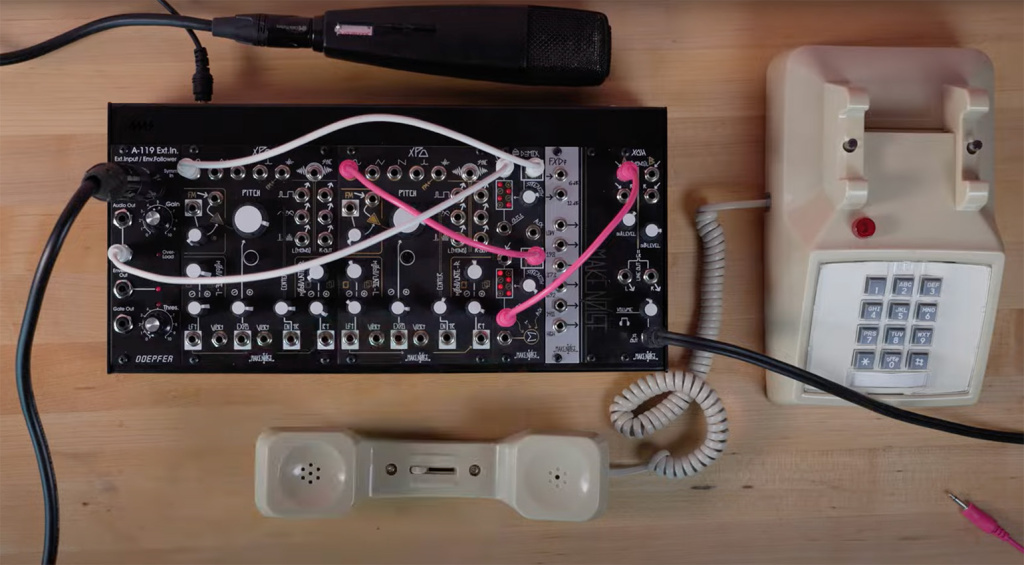
That’s what Pete from Make Noise, who’s usually in charge of the manufacturer’s Instagram videos, set out to do. In this video, he takes you on a little trip down memory lane to the days when a phone was a rather bulky device attached to a tangled cord in the hallway. If you were lucky, you could pick it up and eavesdrop on your little sister talking to her friends about you. Using a 0-Coast and a few other modules and devices, Pete demonstrates that the touch tone sounds can be reproduced with astonishing authenticity.
But that’s not all: using a Make Noise modDemix and a filter bank, he also simulates the analog voice transmission method based on modulation and demodulation. And even the infamous sounds of a dial-up modem can be reproduced reasonably convincingly with a 0-Coast. Now I kinda want to send the resulting sounds through the receiver and see what happens …
If you want to recreate the touch tone sounds yourself, you can find most of the synths and modules Pete used at Thomann*.

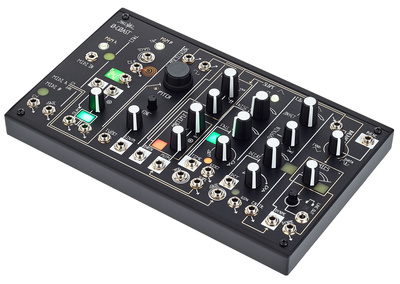

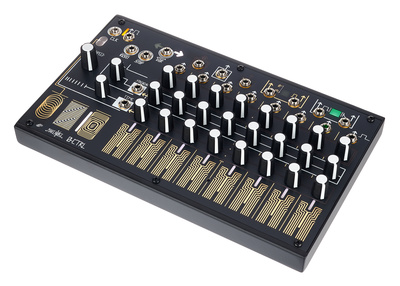

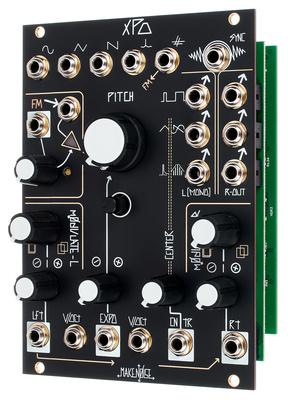





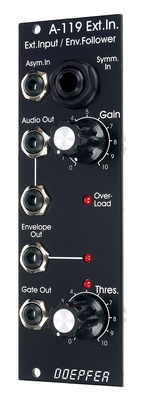
CubuSynth ARKARION: Analog Synth Voice with Digital DNA
Let’s continue with an impressive Eurorack module. ARKARION from CubuSynth is an analog synth voice with digitally controlled routing. The 42 HP module combines the tactile experience of analog modules with the generative potential of random patches. According to the developer, the digital routing system can be thought of as a kind of DNA or genetic code. At the touch of a button, a 16-bit randomizer generates over 65,000 unique routing combinations, which are visualized by multi-color LEDs. Using the Gene Modification control, the DNA can also be modified in real time or via CV. The internal memory holds up to 64 patches.
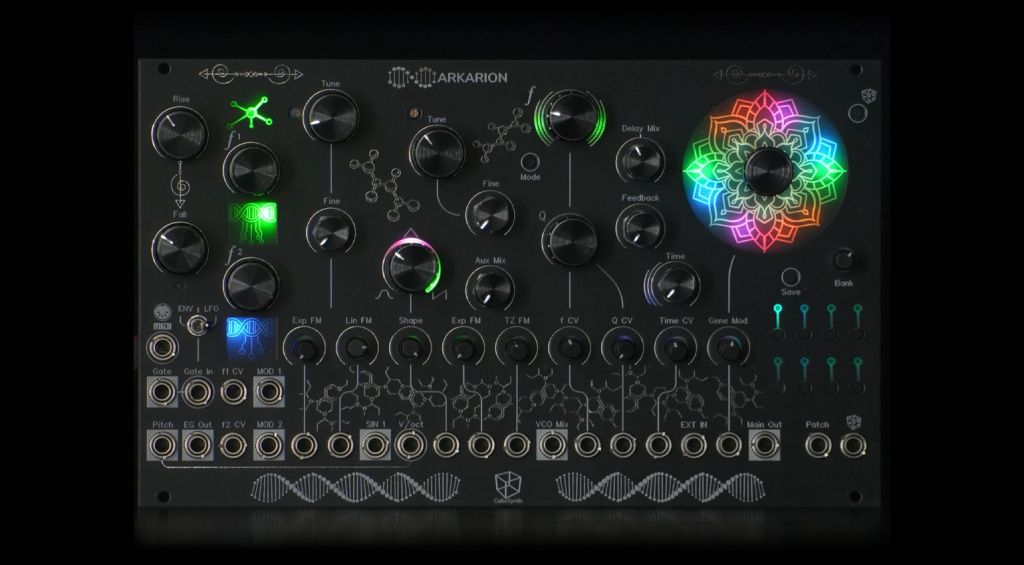
The analog sound engine of the module consists of two VCOs with selectable waveforms and a multimode filter with low-pass, band-pass, high-pass, and all-pass modes. For modulation, there is a rise-fall envelope with loop and gated loop modes, as well as two voltage-controllable LFOs. Throw in a random voltage source and voltage-controllabe tape delay and you’ve got a pretty versatile sound engine, especially considering the powerful digital routing matrix.
ARKARION is scheduled for release on September 18, 2025 and will be available as a fully assembled module ($677), full DIY kit ($435), and PCB/panel kit with pre-soldered SMT components ($212). The module is now available for pre-order on the developer’s website.
Error Instruments Solar Installation: Music Box from the Future
Whenever Error Instruments announces something new, you can prepare to be blown away by something totally unexpected. Paul Tas’ latest creation is Solar Installation, a “music box from the future.” As is often the case with Error Instruments, it’s half synth, half work of art. And like many of his creations, it’s all about those “happy accidents”—sounds and textures you didn’t expect, but which turn out to be highly inspiring.
At the heart of the Solar Installation is an alligator clip patch bay that invites you to experiment with the routing. The four oscillators can be controlled either via traditional knobs or via light sensors, which makes the synth behave like an interactive art installation. Depending on light and shadow, Solar Installation generates a wide spectrum of multi-layered, organic sounds full of movement. There’s even a built-in effects processor for lo-fi echoes and modulation.
If you want to call this musical work of art your own, it’s available for purchase on the Error Instruments website for €475.
Gieskes VCOFan: [Insert OnlyFans Joke Here]
And here’s yet another crazy idea from the Netherlands. Developer Gieskes bolted a CPU fan onto a Eurorack module and converted it into an oscillator. If I’m not mistaken, it uses an LED and a photoresistor located behind the fan. The LDR picks up the light reflected by the fan blades. The speed of the fan—and thus the pitch—is, of course, CV-controllable.
There appear to be different versions of the VCOFan module with different controls and capabilities. The most advanced version is VCOFan1f, which offers an integrated decay envelope with a gate input, making it suitable for percussive sounds as well.
VCOFan1f is available from Gieskes as a kit (€90) or fully assembled (€120).
*This post contains affiliate links and/or widgets. When you buy a product via our affiliate partner, we receive a small commission that helps support what we do. Don’t worry, you pay the same price. Thanks for your support!

 4,2 / 5,0 |
4,2 / 5,0 | 